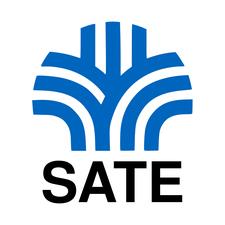Full text of press release on falling recruitment of English students to ITE English quoted in The Times 29/9/17.
As the subject association for English and Literacy in Scotland, we always want to feel able to encourage new, young, excited, and exciting teachers to join the profession. Teaching is a fantastic job, and (to be a little partial), English teaching even more so. However, there are many issues in the teaching profession which make it unsurprising to hear that recruitment and training of new teachers has fallen below the required level.
Pay Freeze
When compared with other graduate level jobs teaching is at risk of becoming financially unviable. Although undergraduates in Scotland do not pay fees for their education, increasing numbers of prospective teachers are saddled with large debts incurred from maintenance loans or other loans related to their own education. Alongside other changes since 2010, such as the public sector pay freeze, this means that teaching is increasingly unattractive. The EIS has calculated over the last decade that teachers have seen an effective pay cut of 16%.
Career Progression
Similarly, career progression for teachers is limited and unclear. For the thousands of teachers who wish to remain in the classroom, educating young people to the best of their ability, routes for that excellence to be recognised have disappeared in recent years. The removal of Chartered Teacher status, and Assistant PT positions, means that the limited ‘management track’ – taking teachers out of classrooms – has become the only route for career advancement. Teachers are required by the GTCS to take part in continuing professional development (CPD), but then to remain for up to 50 years at exactly the same point in their school’s hierarchy and pay structure.
Curriculum Reforms
Recent reforms to the curriculum have required teachers to undertake huge amounts of retraining, with no extra time provided. Whilst SATE is broadly in agreement with the aims of Curriculum for Excellence, the implementation has not recognised the workload upon individual classroom teachers, who are expected to be increasingly autonomous within their own classrooms. This ‘expanded professionalism’, modelled on the Finnish system, has not been matched by Finnish levels of funding, wages, or full-duration Master’s-level training and education of teachers.
Workload
Teachers in all subjects work incredibly hard, long days, far in excess of the time for which they are contracted. However, it is no secret that English teaching has a particularly high workload. An SQA-examined Higher English class of around 25 students results in a marking burden totalling over 30,000 words for one intake of folio essays. Each of these essays must receive feedback, suggestions given, returned for redrafting, and be given follow-up feedback. This process must be repeated for the second folio essay, and the dozens of essays and practise exercises which students will write while preparing for their examinations. All of this must be completed within the less than 7 hours a week put aside for planning and correction. For a teacher with at least two classes preparing for examinations, as well as junior classes, this is a daunting, draining prospect.
Stress & Work intensity
English asks students to engage critically on individual projects and ideas, with essays on topics ranging from the political effect of Donald Trump, the trials of social media, environmental destruction, teen depression, to self-harm. It is not only the workload, but the feeling that you are not doing justice to the intelligence and needs of your pupils, that can lead to many considering leaving profession even once they have braved the threshold.
Training
There are also questions to be asked of the training process. The postgraduate diploma course (PGDE) is notoriously difficult, with students having to negotiate Master’s-level study with the work of a classroom teacher and, in most cases, a part time job. In their probationary year, new teachers have been asked to shoulder a greater burden to compensate for staff shortages while being under a potentially stressful level of scrutiny; it is important to remember that in its initial conception, probationer teachers were envisaged as supernumerary staff, and given the space to grow and develop supported by a well-staffed department. Having undertaken two such gruelling years, it is unsurprising that many are exhausted early in their careers, and leave the profession so soon. It is vital that ITE as a two-year experience of supported progression is embraced in a more strategic fashion so that the whole process of becoming a teacher is more attractive.
Prospective teachers are the best and brightest among us, with a desire to contribute to society. Many are willing to sacrifice much for undertaking this mission. However, they are well aware of these issues, and many will be wondering whether they can really justify those sacrifices to themselves, and their families. The recent Scottish Government document ‘Education Governance: Next Steps’ is an important development, adding clearer ‘Teaching’ and ‘Senior Specialist’ tracks for professional progression. However implementation of these recommendations seems to be in the distant future.
